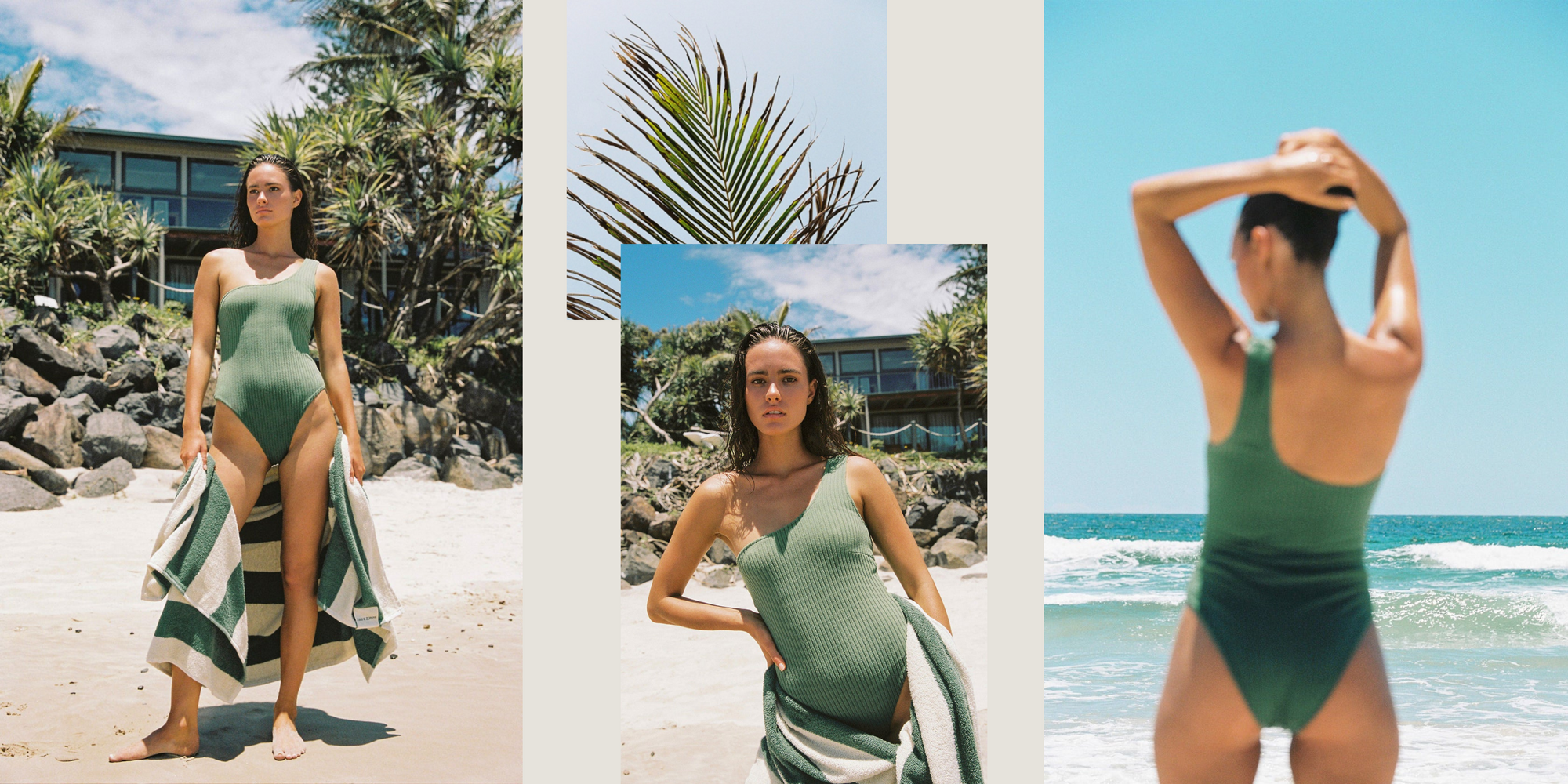SWIMWEAR FABRICSIn 2019, we developed an exclusive ribbed lycra crafted in ECONYL® for a sustainable relaunch of our classic rib signature swim & MINI collection's.In addition and to keep you updated on our journey, launching as of November 2021 styles made from REPREVE® will comprise over 70% of our mainline swim offering. Lining makes up roughly half of swimwear fabric consumption and is often overlooked. Our commitment to sustainability runs through every layer of our ethos as well as our swimwear, therefore as of November 2021 all swimwear will be lined with REPREVE®.Our fabric offering is the result of extensive in-house development fuelled by our commitment to creating pieces that are gentle on the environment and do not compromise on luxury. We hope that our array of custom textured and sustainable fabrications ignites excitement within you and your customers.RTW FABRICSORGANIC COTTON - In 2020 we introduced the use of Global Organic Textile Standard (GOTS) Organic Cotton, a natural fibre that is gentle on you and the environment. Organic cotton crops aren't treated with pesticides, insecticides or herbicides. Organic cotton uses less water and only natural fertilisers in the farming process.RECYCLED COTTON LAUNCHING JUNE 2021- Recycled cotton can be from either pre-consumer which includes scraps from the manufacturing process or post consumer which includes garments or textile waste collected by take-back or donation programs. The process involves sorting the fabrics into type which are is then run through a machine that shreds the fabric into yarn and further into raw fibre.HEMP - Already used within our collections, we choose to use Hemp for its environmentally friendly properties as well as its durability and drape. Often used as a blend with linen or GOTS certified organic cotton as it adds durability and softens with every wear. Our Hemp fabric blended with GOTS cotton holds the Organic 100 Content Standard awarded to blended fabrics to verify the organically grown content.
Hemp from the Cannabis sativa plant is naturally pest resistant so requires a very limited application of pesticide or fertiliser, growing quickly using very little water. It is estimated to use 50% less water than cotton to grow. Hemp also has regenerative properties so its growth contributes to restoring the soil not causing degradation. The soil is replenished with nutrients from the leaves that drop while the plant matures.This process of shredding puts a lot of strain on the fibre which means the quality of recycled fibres often do not compare to that of the original fibre, end-use applications are also more limited as fibre length is reduced. For this reason, recycled fibres are often blended with new fibres to increase the strength and durability of the recycled fibre. For these reasons, design and development using recycled fibres takes time and consideration, working closely with supplier to trace origins and ensure product longevity and durability.Additionally, we are very excited to introduce in June 2021, exclusive knitwear styles made from a blend of recycled post-consumer cotton and viscose.Recycled cotton certified by Global Recycled Standard (GRS) covers the recycled element of a fabric or yarn, validating its compliance to international standards of textile recycling. This is an essential element of using recycled fibres, maintaining accountability and transparency is key and an ongoing commitment for Zulu & Zephyr.IMPORTANT: Please note Zulu & Zephyr Organic Cotton is certified by the Global Organic Textile Standard (GOTS), the leading textile processing standard globally for organic fibres.SHOP THE LATEST ONLINE OR VIA OUR BOUTIQUE NOW


What you want to wear for every birthday occasion. From that boujee restaurant to the reliable Italian down the road, your birthday dinner deserves a look as special as the...




